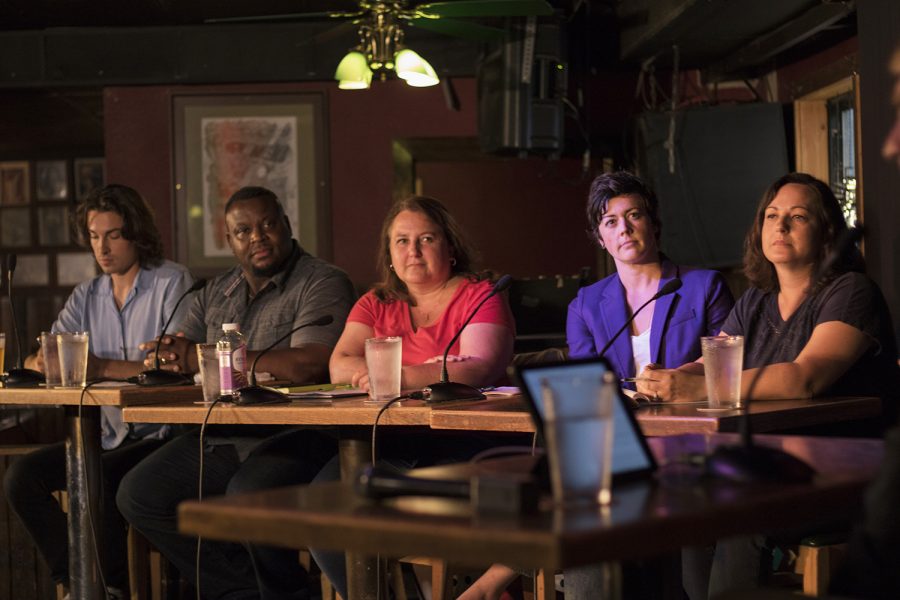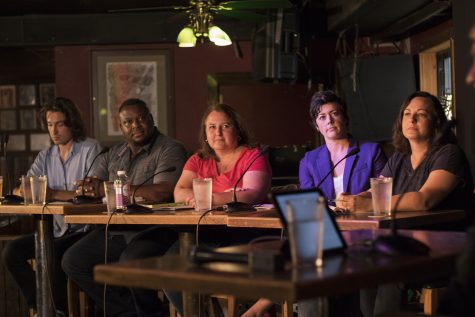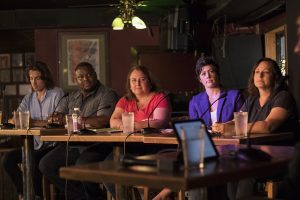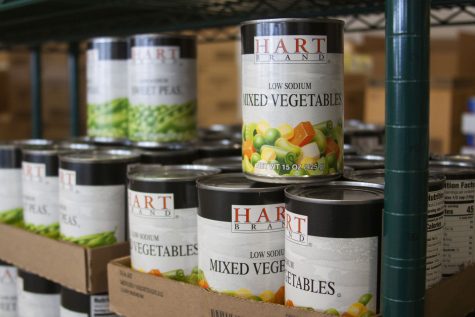Banerjee: Iowa City Council forum sheds new light upon a rushed race
In an election as last-minute at this, finding time to sit down and get to know your candidates is increasingly important. The five City Council candidates spent Monday at a forum dedicated to just that purpose.
City Council special election candidates shared their vision for Iowa City at the Mill.
August 22, 2018
As part of a special-election campaign to replace former Councilor Kingsley Botchway, five candidates spent their Monday evening at the Mill discussing the issues that Iowa City voters care about most.
Botchway’s resignation in July left a vacancy on the City Council, and candidates had less than a month to file nomination petitions, causing a strange position in the political schema of Iowa City. The primary election will be held Sept. 4 to decide which two candidates will move on to run in the special election on Oct. 2.
Each of the five candidates — Ann Freerks, Ryan Hall, Christine Ralston, Bruce Teague, and Brianna Wills — took turns in engaging with the community on issues ranging from neighborhood associations to de facto segregation in the housing market.
As a part of the inaugural “Conversation with the Candidates,” an event organized by University of Iowa Adjunct Assistant Professor Dan Boscaljon, the major focus of the night was in creating an environment of “engaged inquiry.”
In an election based upon so much ingrained chaos, it is difficult to characterize the candidates as anything but what they are: very unprepared yet deeply passionate people.
Few, save perhaps now two-time hopeful Hall, expected to run at all and certainly not this early into Botchway’s expected term. As a result, it is difficult to measure the perceived success of any particular candidates as they struggle to rise above the circumstances of their candidacy.
The forum was held with a fairly simple premise: To begin with, each candidate was given a series of questions aimed at providing voters with insight into what Boscaljon deemed their “vision and character.” This was then followed by a reversal of a normal town-hall meeting in which candidates posed questions to the audience to answer. While many certainly succeeded in sharing “character,” there was a great deal of difficulty on the part of the candidates in demonstrating said vision.
“That’s not one of my questions,” Freerks fired back to Boscaljon upon hearing a follow-up to one of the scripted questions.
Freerks wasn’t the only reticent person present onstage. She and other candidates seemed uncomfortable in addressing anything that fell outside of the purview of the three or so questions they had been given earlier. For some, those questions were difficult in and of themselves.
“I find [deciding between my two greatest values] so incredibly challenging, right?” Ralston said at the beginning of her segment. “We’re, as humans, so exceptionally complicated.”
Many of the candidates struggled in other ways, trying to find middle ground between interest in the national political challenges that candidates such as Hall excelled in and the local community-centric issues that longtime residents such as Freerks saw.
The forum also saw plenty of idealistic goals raised for the community, ranging from Teague’s plan to turn Iowa City into a Human Rights City — which seems nearly impossible, considering the limited role local officials play in larger policymaking — to Hall’s wish to fight for global equality through Iowa City ordinances. In the bisection between experience and vision, many of the less-experienced candidates found themselves lost.
Throughout the entire event, what stood out was the level of community interaction and involvement demonstrated. All of the five candidates truly cared about improving the circumstances surrounding them, and they believed in the importance of civil discourse. People who came to answer the questions posed by the five were all equally engaged and open about what they wanted to see in the community.
Regardless of the rocky starts and stops over the course of the two-hour event, those running for the City Council have proven themselves to be involved members who wish to see good in the community.















